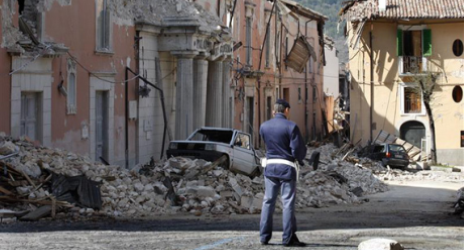
According to news reports, the seven defendants in this case were members of the National Commission for the Forecast and Prevention of Major Risks, accused of having provided "inaccurate, incomplete and contradictory" information about the danger in the wake of tremors felt ahead of the L’Aquila quake (BBC News 11 Oct 2012). Early warning is a key element of most risk reduction systems, and there have been cases where government officials were justifiably held liable for failure to warn of an approaching hazard. However, unlike hazards that can be tracked - such as hurricanes and floods – which allow reasonably accurate warnings to be given, the scientific consensus appears to be that the precise moment when earthquakes will strike is highly unpredictable.
The prosecution case was that the seven experts had not done their job properly, because they reassured the public and disputed the accuracy of a major quake prediction from a local nuclear scientist. The basis of their convictions was that their reassurance caused people to change their behaviour and not evacuate, resulting in many deaths. Evidence presented in their defence was that the scientists made their best estimates based on the data available, but that it was not possible to be certain. They are appealing.
Whatever the final outcome of this case, these dramatic convictions send a very negative message to scientists who, from humanitarian motives, are involved in predicting natural hazards to help avoid disasters. Liability can surely be an important tool to ensure accountability for disaster warnings in some circumstances. However, when it comes to earthquakes, it would seem more productive to turn the legal spotlight on questions such as enforcement of earthquake resistance in building standards, retrofitting older buildings to withstand quakes, and generally looking at land use planning and other urban regulation to reduce risks.